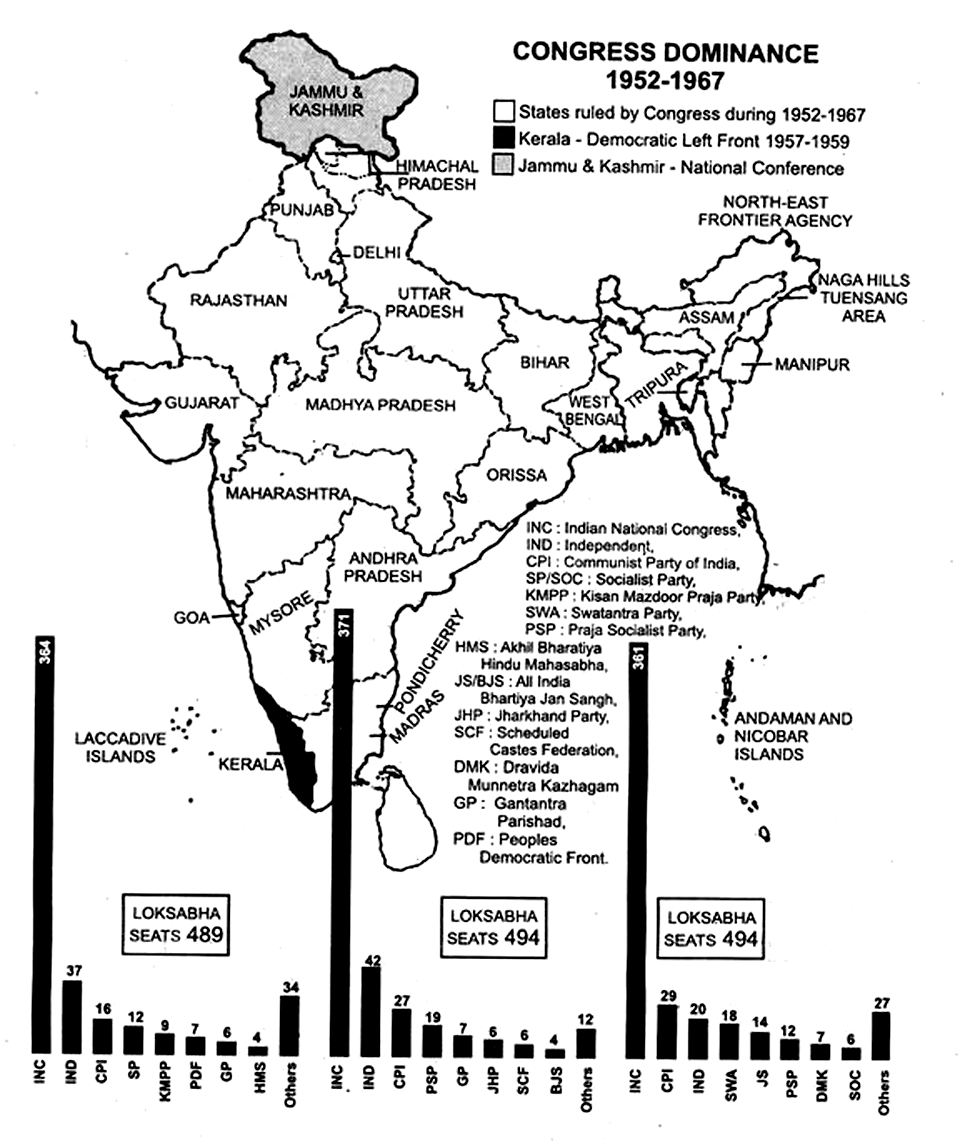Political Science : Contemporary World Politics 2008 CBSE [ Delhi ] Set I
To Access the full content, Please Purchase
-
Q1
Name the international agency relating to environmental programme. Marks:1View AnswerAnswer:
United Nations Environment Programme (UNEP) -
Q2
How did N.T.P. (Non- Proliferation Treaty) not seek to abolish nuclear weapons and was discriminatory? Marks:1View AnswerAnswer:
N.T.P. allows only the nuclear weapon states to have nuclear weapons and stops others from acquiring them. -
Q3
As a result of ‘shock-therapy’, into which economic system, each state of the Soviet bloc was gradually to be absorbed? Marks:1View AnswerAnswer:
Each state of the Soviet bloc was now linked directly to the West and they were gradually absorbed into the Western economic System. -
Q4
What is meant by flows in relation to globalisation? Marks:1View AnswerAnswer:
The meaning of flows in relation to globalisation is – ideas, capital, commodities and people moving from one part of the world to another part of the world. -
Q5
Correct the following statement and re-write: In the U.N. Security Council, the five permanent members are: China , U.S.A, Russia , Australia , U.K. Marks:1View AnswerAnswer:
In the U.N. Security Council, the five permanent members are: China , U.S.A, Russia , France , U.K. -
Q6
Fill in the blanks: Cuban missiles crisis was on account of ---------- placed in Cuba by --------------- Marks:1View AnswerAnswer:
Cuban missile crisis was an account of nuclear weapons placed in Cuba by Soviet Union . -
Q7
Study the given map and identify which was the second largest party in Lok Sabha in the first three general elections
 Marks:1View Answer
Marks:1View AnswerAnswer:
CPI: Communist Party of India was the second largest party in Lok Sabha in the first three general elections. -
Q8
The following question is for Blind Candidates only in lieu of Q. No. 7: In 1952, 1957 and 1962 General Elections which political party achieved second place in two successive elections. Marks:1View AnswerAnswer:
In 1952, 1957 and 1962 General Elections Communist Party of India party achieved second place in two successive elections. -
Q9
Correct the following statement and re-write The basic principle of Indian approach to diversity is: ‘The Indian nation shall not tolerate the rights of different regional and linguistic groups to retain their own culture.’ Marks:1View AnswerAnswer:
The basic principle of Indian approach to diversity is: ‘The Indian nation shall not deny the rights of different regions and linguistic groups to retain their own culture’. -
Q10
Since 1989 until the elections of 2004 which party has been gaining strength in Lok sabha? Marks:1View AnswerAnswer:
Since 1989 until the elections of 2004 Bharatiya Janata Party has been gaining strength in Lok sabha.



